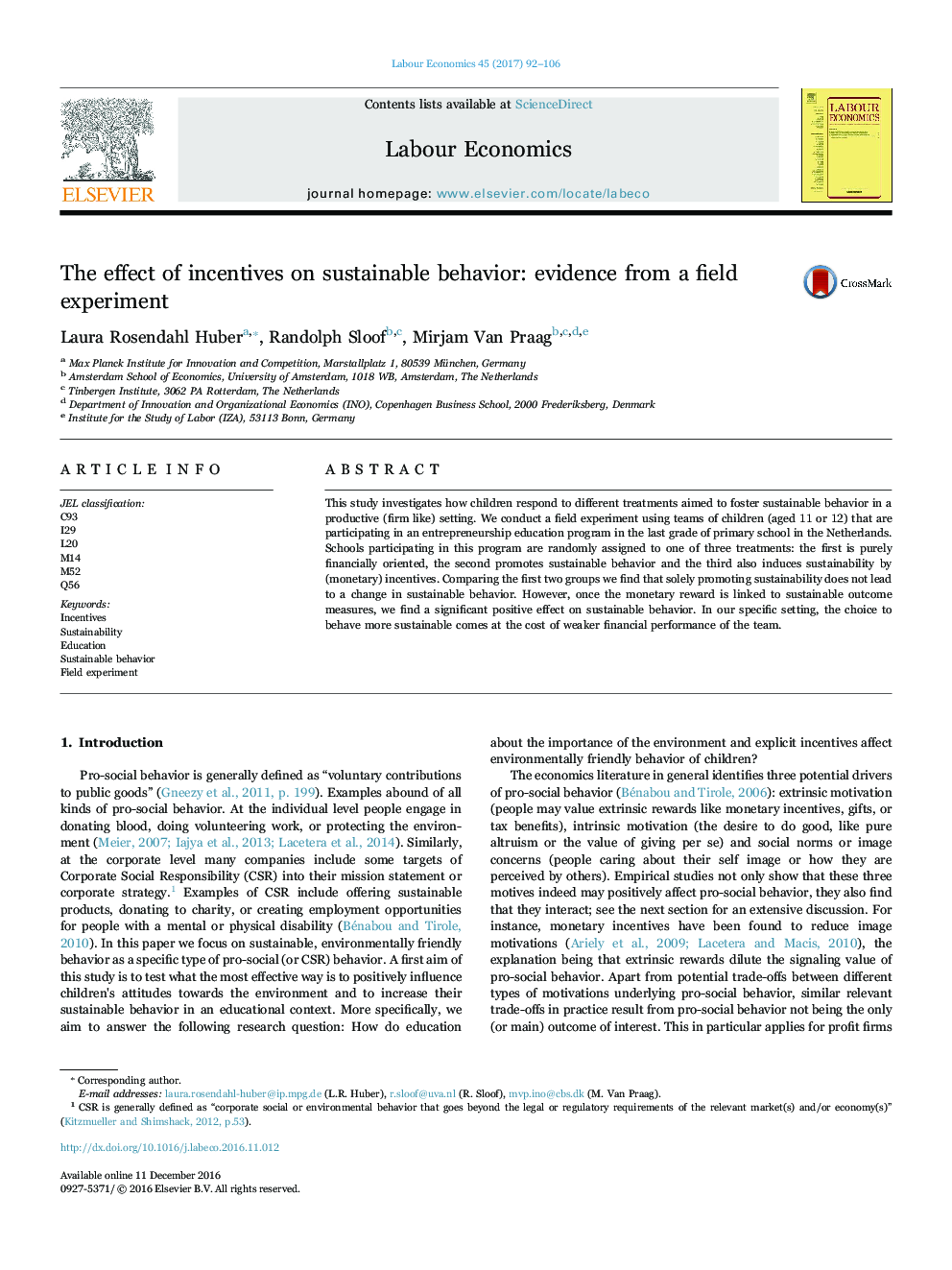| Article ID | Journal | Published Year | Pages | File Type |
|---|---|---|---|---|
| 5102097 | Labour Economics | 2017 | 15 Pages |
Abstract
This study investigates how children respond to different treatments aimed to foster sustainable behavior in a productive (firm like) setting. We conduct a field experiment using teams of children (aged 11 or 12) that are participating in an entrepreneurship education program in the last grade of primary school in the Netherlands. Schools participating in this program are randomly assigned to one of three treatments: the first is purely financially oriented, the second promotes sustainable behavior and the third also induces sustainability by (monetary) incentives. Comparing the first two groups we find that solely promoting sustainability does not lead to a change in sustainable behavior. However, once the monetary reward is linked to sustainable outcome measures, we find a significant positive effect on sustainable behavior. In our specific setting, the choice to behave more sustainable comes at the cost of weaker financial performance of the team.
Related Topics
Social Sciences and Humanities
Economics, Econometrics and Finance
Economics and Econometrics
Authors
Laura Rosendahl Huber, Randolph Sloof, Mirjam Van Praag,
